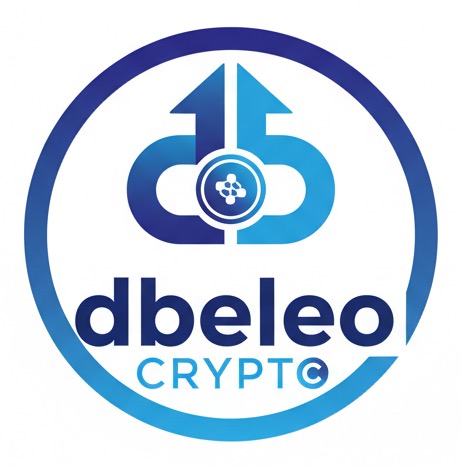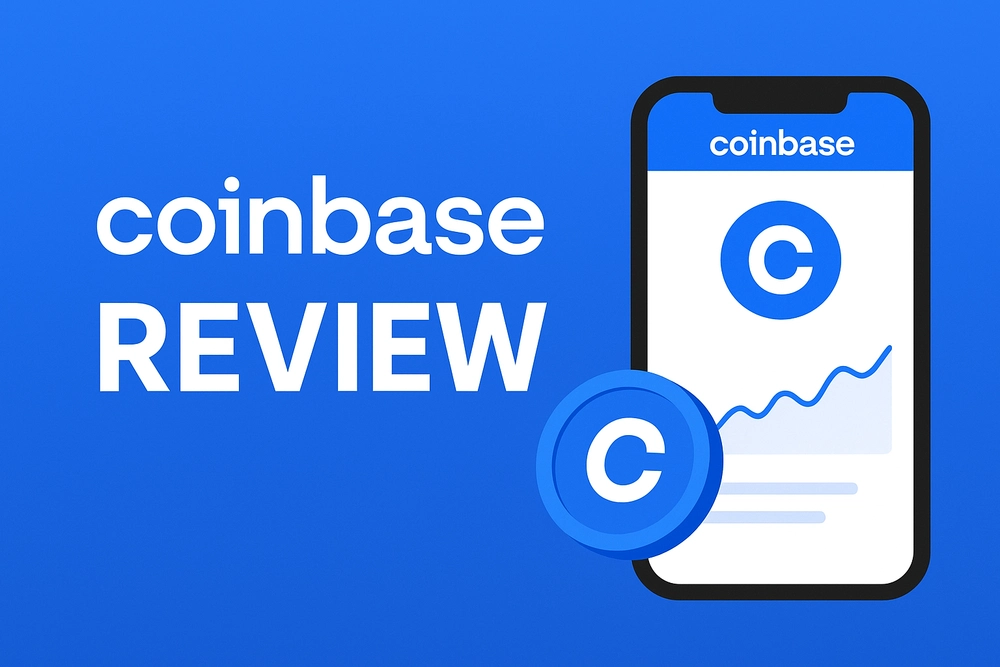Coinbase’s advanced trading interface. Coinbase is one of the largest U.S.-based cryptocurrency exchanges (ticker COIN), founded in 2012. It supports 250+ cryptocurrencies (Bitcoin, Ethereum, etc.) for trading and offers both a simple buy/sell platform and an “Advanced Trade” interface with full charts and order-book tools. Coinbase went public in 2021; as of Nov 2025 its market cap is about $92.7 billion.
The company follows U.S. financial regulations (recently settling with the SEC in 2025) and provides dollar on-ramps (bank/ACH/PayPal) and off-ramps. In summary, Coinbase targets beginners with its clean UI and education tools, while also serving advanced traders via Coinbase Advanced (formerly Coinbase Pro).
Key Features
- Wide crypto selection: Trade 250+ assets, including all major coins.
- Two trading platforms: A basic, user-friendly platform for fiat trades, plus Coinbase Advanced with charting and crypto-to-crypto orders.
- Educational Earn: Users can earn small amounts of crypto by watching short courses on new tokens.
- Fast withdrawals: Coinbase lets you withdraw crypto immediately after buying with fiat (no long settlement wait).
- Staking and Card: Coinbase offers staking rewards (on 100+ coins, up to ~14% APY) and a Visa-based Coinbase Card that gives up to 4% back in crypto on purchases.
- Mobile app: Coinbase’s iOS/Android app is well-rated (around 4.7★ on Apple, 4.5★ on Google) and syncs with the exchange account.
- Coinbase One: A subscription tier ($29.99/mo) that waives some trading fees and adds 24/7 priority support.
Pros
- Large coin selection: Access hundreds of coins and tokens (250+), more than many U.S. exchanges.
- Low entry cost: No account minimum; you can start buying crypto with as little as $1.
- Beginner-friendly: Simple interface and recurring-buy options, plus Coinbase Earn tutorials.
- Quick fiat withdrawal: USD deposits and withdrawals are easy (via bank/PayPal) and crypto withdrawals post-purchase are instant.
- Additional services: Features like crypto staking (earn interest), rewards cards, and recurring buys add utility.
- Strong brand trust: Coinbase is NYSE-listed and extensively audited, which can reassure U.S. users.
Cons
- High fees: Coinbase’s fees are higher than many competitors. Retail trades incur a spread (~0.5%) plus Coinbase’s service fees. Credit/debit purchases cost a flat 2% fee.
- Complex fee structure: The way fees are presented can be confusing – you often only see the total fee after submitting a buy/sell order.
- Limited advanced tools: Margin trading and high-leverage futures are mostly unavailable in the U.S. market; only perpetual futures (up to 10× leverage) are offered.
- Customer support issues: Coinbase has 24/7 chat, email and phone support, but in practice users report long waits and automated chatbots. Getting a human agent can be difficult.
- Regulatory/legal risks: Coinbase was sued by the SEC (settled in 2025) and faces state investigations (Oregon, Illinois). Any future regulatory changes could impact the platform.
- Recent data breach: In May 2025 a security incident exposed personal data (names, addresses, partial credit card data) of <1% of users (no crypto was stolen). This underscores that even reputable exchanges can have vulnerabilities.
Also read: Best Crypto Futures Exchanges for U.S. Traders
How Coinbase Compares to Binance, Kraken, and Gemini
- Binance.US: Known for ultra-low fees (around 0.1% maker/taker), whereas Coinbase’s fees start around 0.5% and higher for certain payment methods. Binance offers more advanced trading features globally, but its U.S. platform has fewer coins (due to local regulations). Binance’s exchange is geared to pros, while Coinbase’s interface is simpler for newbies.
- Kraken: Emphasizes security (24/7 live support, proof-of-reserves) and low fees. Like Coinbase, Kraken uses strong safeguards (2FA, cold storage), but Kraken’s maker fees are typically lower (e.g. 0.16% or less) for high-volume traders. Coinbase is more beginner-friendly, whereas Kraken is often favored by experienced traders.
- Gemini: U.S.-regulated (New York) and highly compliant; insures USD deposits via FDIC. Gemini’s interface is simple, but it supports fewer altcoins and its fees are comparably high (NerdWallet notes “higher fees than some other exchanges”). Both Coinbase and Gemini emphasize trust and transparency, but Coinbase lists more assets.
Coinbase Wallet and Crypto Wallet Features
A Coldcard hardware crypto wallet. Unlike the exchange (custodial) wallets above, Coinbase Wallet (a separate app) is a non-custodial or “user-controlled” wallet. This means you hold your private keys/seed phrase, not Coinbase. Coinbase Wallet supports a wide range of assets and integrates with decentralized apps (DApps). Key features valued in crypto wallets are multi-coin support, secure encryption, and DApp connectivity – all of which Coinbase Wallet offers. For example, it uses industry-standard encryption and lets you link with Web3 apps directly. You can back up your wallet with a recovery phrase or even connect a hardware key.
In contrast, hardware wallets (like the Coldcard shown above) store keys entirely offline, providing maximum security. Coinbase Wallet trades off some security (since it is software-based) for convenience. Both give you control of funds, whereas the regular Coinbase exchange keeps custody of your crypto. When choosing a wallet, reviewers look for secure storage, key control, and ease-of-use. Coinbase Wallet meets these: it’s secure (non-custodial) and user-friendly, but users must responsibly manage their keys.
Security and Trust (Is Coinbase Safe?)
Coinbase is generally considered secure for an exchange. It stores over 98% of user crypto in offline “cold” storage, making direct hacks very difficult. Accounts can be secured with two-factor authentication (via mobile app or hardware key), biometric passcodes, or SMS (though Coinbase recommends app-based 2FA). The platform also offers additional protections: users can set up trusted contacts for account recovery. Coinbase carries crime insurance for a portion of assets and keeps customer USD in FDIC-insured bank accounts (up to $250K per person). As a publicly traded U.S. company, Coinbase undergoes regular audits and disclosures, and holds a BBB A+ rating for trustworthiness.
That said, no exchange is immune. The May 2025 breach showed that personal data (names, emails, etc.) can be exposed to phishing attempts. Coinbase also deals in a highly regulated environment: it ended an SEC lawsuit in early 2025 and faces state-level probes. U.S. users often prefer Coinbase because of its regulatory compliance (SEC reporting, licenses, etc.), but should still follow best practices: enable 2FA, use hardware keys, and watch for phishing texts (see next FAQ).
Fees
Coinbase’s fees are higher than many rivals. A typical spot trade incurs a spread (~0.5%) plus additional convenience fees. On Coinbase Advanced (Pro), maker fees range from 0–0.6% and taker fees from 0.08–1.2% depending on volume. Credit/debit card purchases cost a 2% fee. The Coinbase One subscription ($29.99/month) waives trading fees on up to $1,000–$10,000 of monthly volume, depending on tier. There are also network fees for withdrawals. In practice, total costs can exceed 1% for small trades, so active traders often use Coinbase Advanced or move to lower-fee exchanges. Fees are disclosed after order execution, which can frustrate users.
Also read: Top 10 Crypto Price Predictions & Market Analysis
Customer Support and Careers
Coinbase offers 24/7 support via in-app chat, email, and phone. However, many reviews note that initial contacts hit automated responses, and getting a live agent can be slow. The exchange maintains a help center, community forum, and status page for outages (see “Is Coinbase down?”).
As an employer, Coinbase is large and growing. The company reports 4,700+ employees as of Q3 2025. Its careers page emphasizes a high-performance, remote-first culture – most roles are “remote-first” with occasional in-office collaboration. Coinbase hires in engineering, product, security, compliance, marketing, and more.
Coinbase Stock and News
Coinbase trades on Nasdaq under COIN. As noted, its market cap is roughly $92–93 billion (November 2025). Its stock price has been volatile with crypto markets; for example it was around $344 per share recently. Coinbase often appears in crypto headlines – whether for new features (like Base Layer 2 launch), regulatory actions (SEC investigations), or crypto market swings. Users tracking Coinbase news should watch official releases and credible outlets to stay informed.
FAQ
What is Coinbase?
Coinbase is a U.S.-based cryptocurrency exchange and brokerage launched in 2012. It lets users buy/sell over 250 coins (BTC, ETH, etc.) with USD or other crypto. Coinbase offers a simple mobile/web platform for beginners and an “Advanced Trade” interface for professional traders. It is a publicly traded company (NASDAQ: COIN) regulated in the U.S. and abroad.
Is Coinbase safe?
Coinbase uses industry-standard security: most crypto is kept in cold storage, accounts require two-factor authentication (SMS/app passcodes or hardware keys), and USD deposits are FDIC-insured. The exchange has never had a loss of customer crypto. It carries crime insurance for hacks. That said, scammers sometimes target users with fake texts or emails. Coinbase itself warns about SMS phishing (“smishing”) – texts that ask you to click a link or provide a “withdrawal code” are almost always fraudulent. Never share verification codes. In short, Coinbase is reputable, but users must also practice good security (strong password, 2FA, etc.).
How are Coinbase fees structured?
Fees depend on platform and payment method. A typical standard buy/sell has a spread (~0.5%) plus Coinbase’s fees (up to 4% for very small trades). Coinbase Advanced uses a maker-taker model: fees are 0–0.6% for makers and 0.08–1.2% for takers, scaling by volume. ACH bank transfers have low fees, but credit/debit card buys incur ~2%. Coinbase One members pay $29.99/month to waive trading fees on small volume tiers. Always review the fee schedule at signup; NerdWallet notes Coinbase’s fees are generally higher and less transparent than many rivals.
What is Coinbase Pro (Advanced Trade)?
Coinbase Pro (now called Coinbase Advanced) is the same company’s professional trading platform. It has a more complex interface with live order books, stop/limit orders, and advanced charting. It supports crypto-to-crypto pairs (Ethereum, altcoins) and has lower fees for high-volume traders. In practice, you can toggle between Coinbase’s simple (USD on-ramp) interface and the Advanced platform with a dropdown.
What is Coinbase Wallet and how does it differ?
Coinbase Wallet is a separate, non-custodial app (mobile/desktop) where you hold the private keys. It supports dozens of coins and Ethereum-based DApps. In Coinbase Wallet, you control your seed phrase, whereas on the Coinbase.com exchange, Coinbase holds your keys. Coinbase Wallet allows multi-crypto storage, in-wallet swaps, and DApp access. It is the user’s responsibility to secure the wallet and backup the recovery phrase. (This differs from a hardware wallet like the Coldcard shown above, which stores keys offline for even higher security.)
How do I log in and get support?
Create an account on Coinbase.com or via the mobile app with your email and a strong password. You must complete KYC (identity verification) to trade. Always enable two-factor authentication. For support, Coinbase offers 24/7 chat and email through the app or website. The knowledge base covers most issues. If stuck, check Coinbase’s official status page or forums. Note that live human support can be slow, so patient users often rely on the help center or Reddit communities for answers.
What was the 2025 security incident?
In May 2025 Coinbase reported that hackers gained access to a third-party customer support tool and obtained personal data (names, addresses, partial credit card info) of some users. Importantly, no wallets or crypto were compromised. Coinbase alerted affected users to change passwords. This incident serves as a reminder: always enable 2FA and beware of phishing. Official Coinbase channels (blog or email) are the only places where they would mention such a breach.
What is the Coinbase Card?
The Coinbase Card is a Visa debit card linked to your Coinbase account (enabled in regions where it’s offered). You can spend crypto or USD from your account at merchants worldwide. It even gives rewards (up to 4% back in Bitcoin) on purchases. This lets you use crypto like cash, but note spending crypto will realize a taxable event on the sold asset.
Why is Coinbase sometimes down or slow?
Occasionally, Coinbase (like all exchanges) has outages during heavy market volatility or maintenance. For example, large price swings can trigger extra security checks, or scheduled upgrades may briefly halt trading. Coinbase posts incident updates on its status page. Compare to Amazon’s AWS outages, sometimes Coinbase’s cloud infrastructure issues can cause temporary disruption. Always check status.coinbase.com for real-time updates.
Where can I find Coinbase news?
Trusted crypto news sites (CoinDesk, Cointelegraph, major media) and Coinbase’s own blog report on new features, policies, or security alerts. For stock or financial news, look at Nasdaq filings or Yahoo Finance (ticker COIN). Knowing the latest news helps understand Coinbase’s reputation and any emerging risks.







